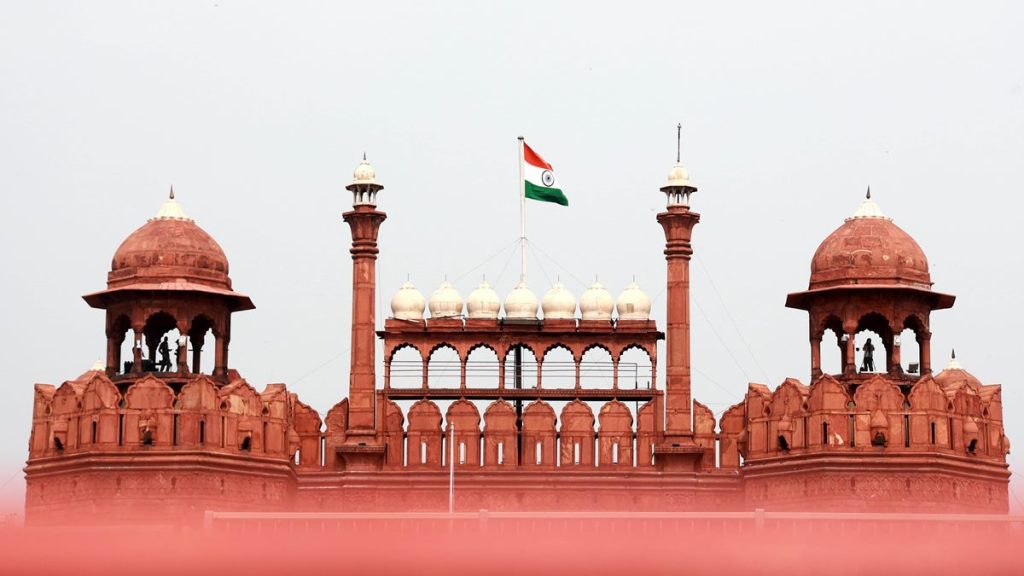Independence Day 2023- History & Significance: As August 15, 2023, approaches, India is preparing to observe its 77th Independence Day, a momentous occasion that holds great historical significance. This day stands as a poignant reminder of the nation’s emancipation from British colonial dominance, a struggle that endured for nearly two hundred years. Each year, on this day, citizens across the country unite in celebration to honour the country’s liberation from British colonial rule.
The history and significance of this day are deeply rooted in India’s struggle for independence and the sacrifices made by countless individuals over several decades.
History:
The British East India Company established its presence in India during the 17th century, gradually expanding its control over various regions. By the mid-19th century, the Indian subcontinent was under British colonial rule, causing widespread economic exploitation, cultural suppression, and social inequality. As a result, a growing movement for independence and self-rule gained momentum.
Key events leading up to India’s Independence Day include:
Formation of Indian National Congress (INC): The Indian National Congress was founded in 1885 with the initial goal of seeking a share in government for educated Indians. Over time, it became a central platform for India’s struggle for independence.
Non-Cooperation Movement: Under the leadership of Mahatma Gandhi, the Non-Cooperation Movement was launched in 1920, advocating nonviolent resistance and non-cooperation with British authorities. It aimed to challenge British economic and administrative control.
Civil Disobedience Movement: The Civil Disobedience Movement, initiated by Gandhi in 1930, called for Indians to disobey unjust laws and taxes imposed by the British government. This movement gained widespread participation and brought international attention to India’s plight.
Quit India Movement: Launched in 1942, the Quit India Movement was a mass protest against British rule. It marked a significant turning point in India’s struggle, with leaders like Gandhi, Jawaharlal Nehru, and others being imprisoned.
World War II Impact: The global context of World War II weakened the British Empire’s ability to maintain control over its colonies, including India. The war brought attention to the need for self-determination and freedom.
Mountbatten Plan: The British government, realizing it could no longer sustain its hold over India, proposed the Mountbatten Plan. Lord Louis Mountbatten was appointed as the last Viceroy of India, and India’s partition into two separate nations, India and Pakistan, was announced.
Significance:
India’s Independence Day holds immense significance for several reasons:
Freedom and Self-Determination: August 15, 1947, marked the end of nearly 200 years of British colonial rule and the dawn of a new era for India. It symbolized the country’s regained freedom and its people’s right to self-determination.
Unity in Diversity: India’s Independence Day is a reminder of the country’s rich cultural diversity and the unity that emerged among Indians in their struggle for independence, transcending regional, linguistic, and religious differences.
Democracy and Nation-Building: With independence, India adopted a democratic system of governance, striving to create a nation based on principles of justice, equality, and freedom for all its citizens.
Sacrifice and Struggle: The day pays homage to the countless sacrifices made by freedom fighters, leaders, and ordinary citizens who fought bravely and endured hardships to secure India’s independence.
Inspiration: India’s struggle for independence has served as an inspiration to other nations striving for self-rule and freedom from colonial oppression.
On Independence Day, the Prime Minister of India hoists the national flag at the Red Fort in Delhi, followed by a speech addressing the nation. The day is marked by various cultural events, patriotic songs, parades, and flag-hoisting ceremonies across the country. It serves as a reminder of India’s journey from subjugation to sovereignty and the ongoing efforts to uphold the values of independence, unity, and progress.


